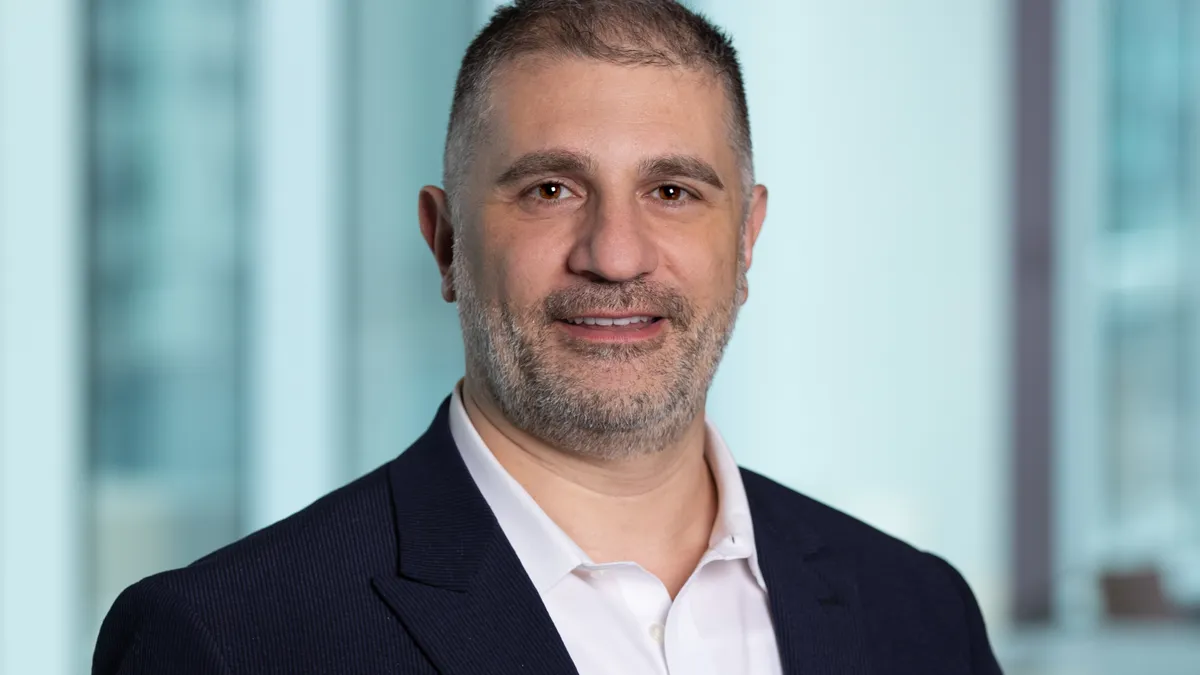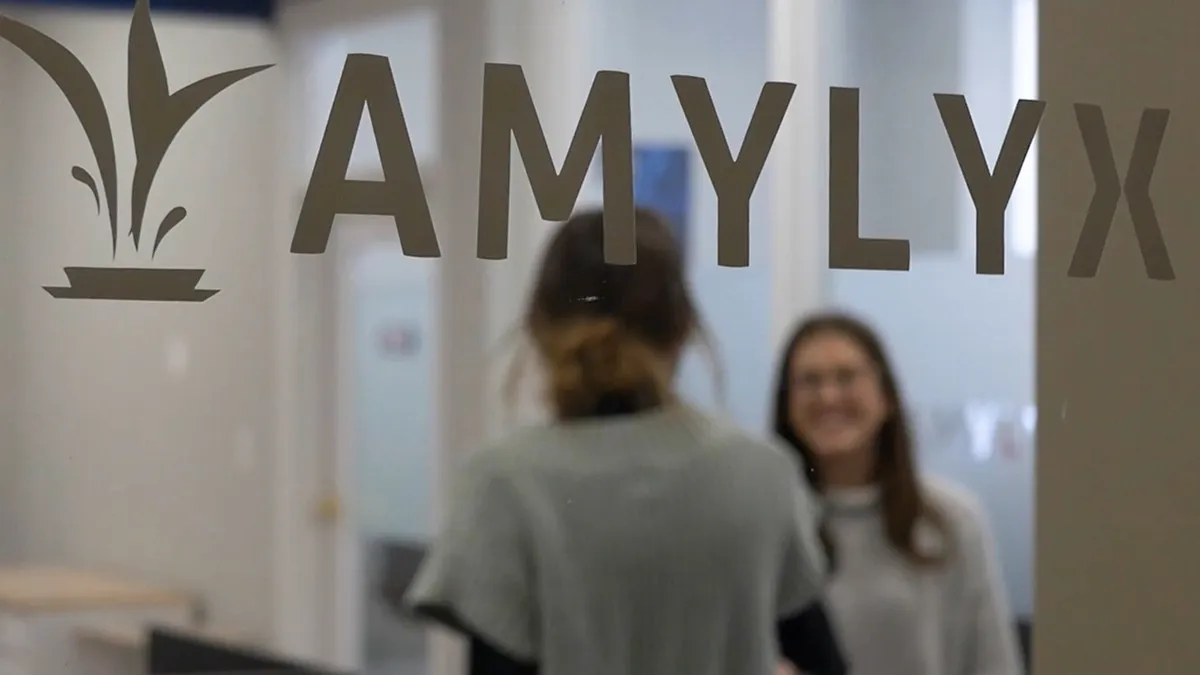Gianluca Pirozzi calls his 10-year-old daughter, Valentina, a “force of nature” — and the joy of his life. Yet there are aspects of being her father that are unique to an extremely small community of parents.
“The level of impact of rare diseases is extremely difficult,” Pirozzi, senior vice president, head of development, regulatory and safety at Alexion Pharmaceuticals, AstraZeneca Rare Disease, said. “You’re alone. Nobody understands you.”
Valentina has Smith-Magenis syndrome (SMS), a rare genetic disorder that’s characterized by cognitive impairment, sleep problems and behavioral challenges, including unpredictable and sometimes aggressive temper tantrums that can be triggered by anything and happen anywhere, at any time.
“When I say tantrum, imagine the kid basically going on the floor, head banging, screaming. They can last from five minutes to one hour. Very often there’s nail picking, so pretty much she takes off her nails, and they start bleeding,” Pirozzi said. “It’s very hard to control. When you start controlling her, then she starts getting aggressive with biting, spitting, kicking. So imagine you’re in a supermarket or a public place … people around [you] don’t understand. They judge. It’s very hard.”
“This has been one of the biggest teaching lessons I had in rare disease. Actually looking through the eyes of what I go through [with] my daughter.”

Gianluca Pirozzi
SVP, head of development, regulatory and safety, Alexion Pharmaceuticals, AstraZeneca Rare Disease
The sleep disorder that accompanies Valentina’s SMS is challenging as well. Because she can wake up all night, Valentina sleeps in an enclosed bed for her safety. She needs constant care, including a special needs school and specialized childcare support that costs tens of thousands of dollars a year. Everyone in the family is affected, including Valentina’s younger sister. There isn’t one aspect of their lives that her rare disease doesn’t touch.
“It’s very difficult to appreciate how profound the impact is unless you live it,” Pirozzi, a 2023 PharmaVoice 100, said. “There’s a whole psychological impact, work impact, financial impact.”
Understanding the impact of rare disease has not only shaped who Pirozzi is as a person and parent, but also as a drug developer.
“This has been one of the biggest teaching lessons I had in rare disease,” he said. “Actually looking through the eyes of what I go through [with] my daughter.”
Finding a calling
A doctor and immunologist by training, Pirozzi’s life and career was shaped by rare disease from an early age. While growing up in Italy, Pirozzi was inspired to study medicine because his best friend, Antonio, had a rare form of anemia that carries an average life expectancy of just 20 years.
“He used to live his life as if it was ending tomorrow, or knowing it was going to end very soon,” Pirozzi said, adding that he still thinks of Antonio often.
“For that reason, I went into medicine,” he said.
However, Pirozzi didn’t want to be a clinician. Instead, he was drawn to research and eventually, the pharma industry, with its promise of bringing new medications and therapies to patients.
“The pharma industry is the fastest way to get there because the goal of pharma is producing a new drug, a new medication,” he said. “I realized very quickly within the pharma industry that we are the ones who’ll be changing the world when it comes to providing new medications.”
Pirozzi spent nearly 14 years at Sanofi including as global project head for the blockbuster Dupixent, and eventually, head of development for rare diseases and gene therapy at Genzyme, a subsidiary of Sanofi.
While his friend Antonio inspired Pirozzi to work in medicine, it was Valentia who inspired his rare disease focus. Taking on that role at Genzyme, “opened up a whole universe of rare diseases for me,” and his 2019 move to Alexion — a company entirely devoted to rare disease — widened it further.
“I joined Alexion, fundamentally, because it was the perfect place for merging my rare disease passion with immunology,” he said.
The following year, AstraZeneca announced its $39 billion buyout of Alexion — the industry’s largest deal in 2020. Alexion was already a commercial stage company with multiple marketed products and a deep pipeline of treatments in developments, and the deal transformed it into an even more formidable player in the rare disease space. Despite being in the fold of Big Pharma, Pirozzi maintains that the company's fundamental approach to drug development comes down to the intimate details of individual patients’ lives.
Living a rare life
Valentina was a year and a half old when she was diagnosed with SMS, but there had been “all these little signals” that something wasn’t right before then. She was born with coloboma, a rare iris deformity that’s often linked to genetic conditions, and later, failed to meet developmental milestones. There were also indications she had a decreased pain sensitivity. Valentina didn’t cry in cold ocean water or when she got her ears pierced, despite being only a few months old.
Because of his medical expertise, Pirozzi knew they needed to push for answers from specialists, including a neurologist, who suggested a full genetic panel. That test revealed a problem with chromosome 17 and the SMS diagnosis. But the news only brought more questions. The test results came in the mail and without any call from a physician, so Pirozzi did what any parent would do: He Googled it.
Even with his medical background, though — and succeeding in getting an accurate diagnosis years before most families do — he struggled to understand the condition at first.
“I was a Ph.D., M.D., but I had no clue what Smith-Magenis syndrome was,” he said.
He eventually found guidance and support, including from a colleague at Genzyme and later, other SMS families. He now serves as a scientific advisor for the SMS Research Foundation.
Applying personal experience
Understanding how a rare disease affects patients, families and caregivers on a practical, day-to-day basis is at the heart of how companies approach drug development for rare diseases — even at a larger pharma like AstraZeneca’s Alexion.“We try to connect to them very early on, through the entire development process,” asking about their day-to-day challenges and needs, then designing clinical trials with endpoints that address those needs, Pirozzi said.
“I wish and I hope that what we’re doing for rare diseases could be applied more generally to medicine."

Gianluca Pirozzi
SVP, head of development, regulatory and safety, Alexion Pharmaceuticals, AstraZeneca Rare Disease
For example, a physician might think about improving motor skills in general, but someone living with a rare disease would be far more specific.
“The patients and the families will tell you, my kid cannot hold a fork, and they cannot actually eat,” Pirozzi said.
Alexion also tries to apply those learnings later, too. For instance, Pirozzi pointed to the rare disease hypophosphatasia. Although Alexion’s drug, Strensiq, is an approved hypophosphatasia treatment, the company is developing ALXN1850, a next-generation treatment with greater potency, less frequent dosing and other improvements, many of which were based on patient feedback.
“It’s a better product, and we’re now running a whole new host of clinical studies globally to be able to expand our development and bring that medication to many more patients globally as well,” he said.
Whether it’s as a father or a drug developer, Pirozzi will continue to prioritize the needs and perspectives of people living with rare diseases, and hopes the rest of the industry will, too.
“It’s much more powerful when you actually go to the bottom of the issues and you talk to the patients and the families and the caregivers,” he said. “I wish and I hope that what we’re doing for rare diseases could be applied more generally to medicine and include the patient voice … on a systematic basis in drug development.”
Editor’s note: Nominations for the 2024 PharmaVoice 100 are open. Know a standout leader in the life sciences who’d be a good fit? Let us know using our nomination form by May 5.















